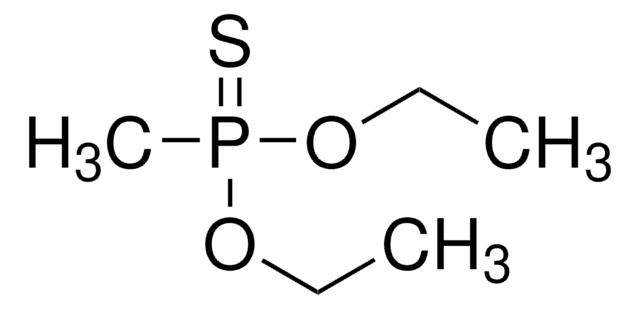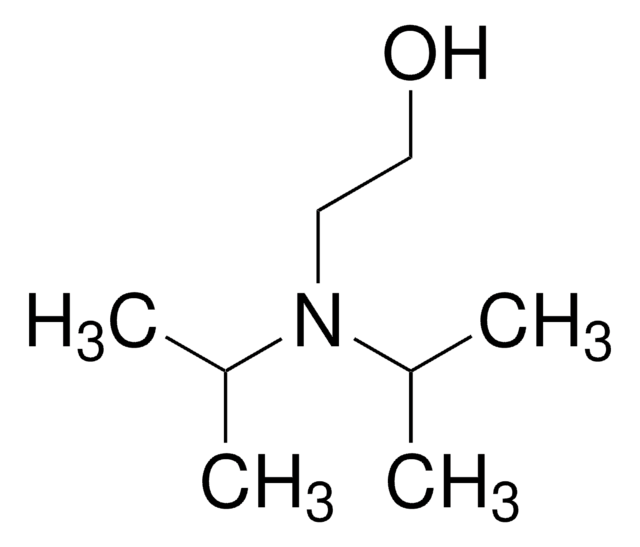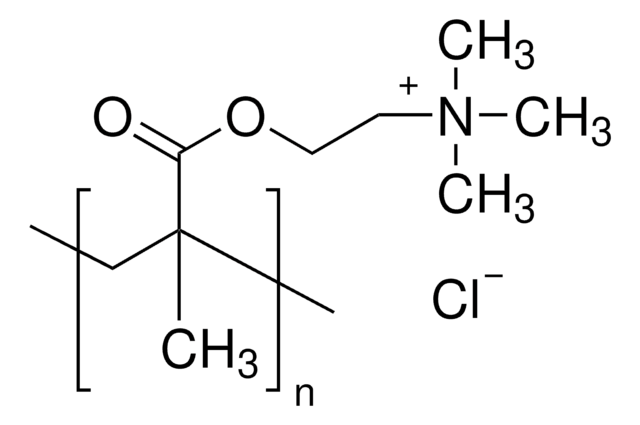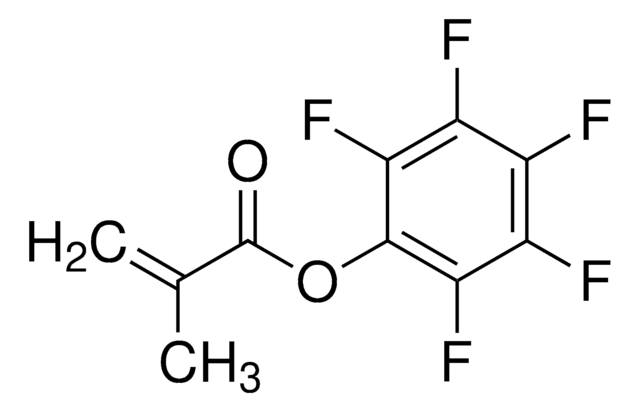730971
2-(Diisopropylamino)ethyl methacrylate
97%, contains ~100 ppm monomethyl ether hydroquinone as inhibitor
Sinónimos:
DPA, DPAEMA
Iniciar sesiónpara Ver la Fijación de precios por contrato y de la organización
About This Item
Fórmula empírica (notación de Hill):
C12H23NO2
Número de CAS:
Peso molecular:
213.32
Número CE:
Número MDL:
Código UNSPSC:
12162002
ID de la sustancia en PubChem:
NACRES:
NA.23
Productos recomendados
Nivel de calidad
Ensayo
97%
Formulario
liquid
contiene
~100 ppm monomethyl ether hydroquinone as inhibitor
índice de refracción
n20/D 1.145
densidad
0.900 g/mL at 25 °C
temp. de almacenamiento
2-8°C
cadena SMILES
CC(C)N(CCOC(=O)C(C)=C)C(C)C
InChI
1S/C12H23NO2/c1-9(2)12(14)15-8-7-13(10(3)4)11(5)6/h10-11H,1,7-8H2,2-6H3
Clave InChI
SVYHMICYJHWXIN-UHFFFAOYSA-N
Descripción general
2-(Diisopropylamino)ethyl methacrylate (DPA) is a methacrylate class of monomer used to prepare various DPA-derived polymers, which includes poly(2-(diisopropylamino)ethyl methacrylate) (PDPA). PDPA is a water-soluble polymer, which exhibits sensitivity to changes in pH and temperature. At pH levels below its pKa value of approximately 6.5, PDPA undergoes a transition from hydrophobic to hydrophilic behavior. This transition is attributed to the protonation of its amino groups. These unique properties of PDPA polymers consequently make them very useful in various applications such as drug delivery, gene delivery, sensors, surfaces, membranes, and chromatography.
Aplicación
2-(Diisopropylamino)ethyl methacrylate can be used:
- As a monomer in the synthesis of multi-responsive hyperbranched copolymers by combining poly(oligo(ethylene glycol)methyl methacrylate) (P(OEGMA)) and 2-(diisopropylamino)ethyl methacrylate (PDIPAEMA) using RAFT polymerization. These polymers find application in drug delivery, gene delivery and tissue engineering.
- A monomers in the synthesis of block copolymer poly(ethyleneglycol)-b-poly(2-(diisopropylamino)ethyl methacrylate) (PEG-b-PDPAEMA). These pH-responsive micelles can be used for enhanced intracellular drug delivery. The DPA monomer contributes to the pH-responsive nature of the copolymers.
Palabra de señalización
Danger
Frases de peligro
Consejos de prudencia
Clasificaciones de peligro
Eye Dam. 1 - Skin Irrit. 2 - Skin Sens. 1 - STOT SE 3
Órganos de actuación
Respiratory system
Código de clase de almacenamiento
10 - Combustible liquids
Clase de riesgo para el agua (WGK)
WGK 3
Punto de inflamabilidad (°F)
210.0 °F
Punto de inflamabilidad (°C)
98.9 °C
Elija entre una de las versiones más recientes:
¿Ya tiene este producto?
Encuentre la documentación para los productos que ha comprado recientemente en la Biblioteca de documentos.
Los clientes también vieron
Emma von Wowern et al.
The journal of maternal-fetal & neonatal medicine : the official journal of the European Association of Perinatal Medicine, the Federation of Asia and Oceania Perinatal Societies, the International Society of Perinatal Obstetricians, 30(19), 2309-2314 (2016-10-14)
Uterine artery (UtA) Doppler velocimetry changes and increased arterial stiffness are associated with preeclampsia. We aimed to investigate the relation between UtA velocimetry changes and arterial stiffness in pregnant women. Doppler velocimetry and photoplethysmographic digital pulse wave analysis (DPA) were
Robert K McNamara et al.
Prostaglandins, leukotrienes, and essential fatty acids, 136, 23-34 (2017-05-23)
There is a substantial body of evidence from animal studies implicating polyunsaturated fatty acids (PUFA) in neuroinflammatory, neurotrophic, and neuroprotective processes in brain. However, direct evidence for a role of PUFA in human brain structure and function has been lacking.
Kaishi Narushima et al.
Nanoscale, 9(30), 10653-10661 (2017-06-14)
Up-conversion materials composed of donor and acceptor molecules which convert low energy photons into higher energy ones by triplet-triplet annihilation can improve the sensitivity of photocatalysts or the efficiency of solar cells. The use of crystalline materials can lead to
Daniel Martínez-Laguna et al.
PloS one, 13(9), e0203533-e0203533 (2018-09-08)
An increased fracture risk has been described as a complication of Type 2 diabetes mellitus (T2DM). Clinical prediction models for general population have a limited predictive accuracy for fractures in T2DM patients. The aim was to develop and validate a
Marina E Aspholm et al.
Food microbiology, 84, 103259-103259 (2019-08-20)
Bacillus licheniformis is frequently associated with food spoilage due to its ability to form highly resistant endospores. The present study reveals that B. licheniformis spore peptidoglycan shares a similar structure to spores of other species of Bacillus. Two enzymatic activities
Nuestro equipo de científicos tiene experiencia en todas las áreas de investigación: Ciencias de la vida, Ciencia de los materiales, Síntesis química, Cromatografía, Analítica y muchas otras.
Póngase en contacto con el Servicio técnico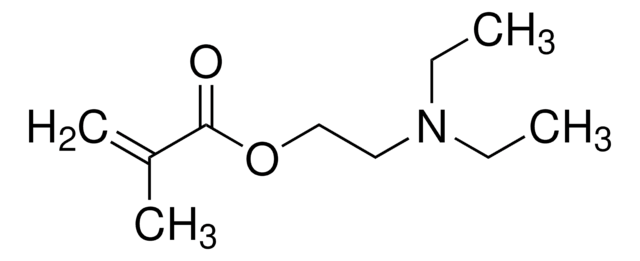
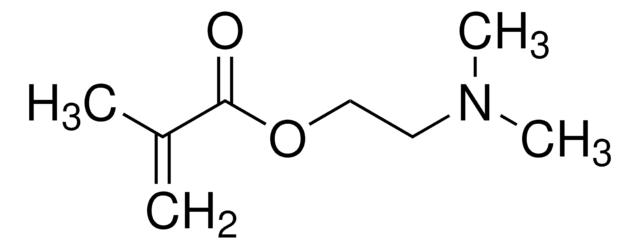

![N-[3-(Dimethylamino)propyl]methacrylamide 99%, contains MEHQ as inhibitor](/deepweb/assets/sigmaaldrich/product/structures/295/145/6b4aae15-7cb5-4b7b-9c06-8e6d24e50951/640/6b4aae15-7cb5-4b7b-9c06-8e6d24e50951.png)
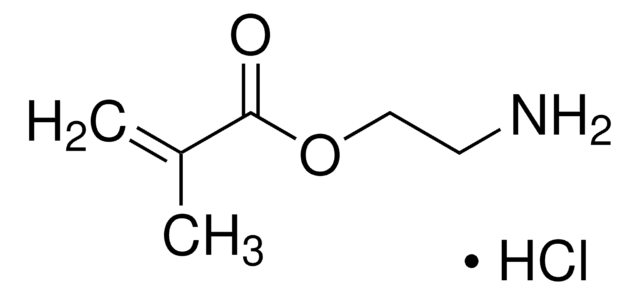

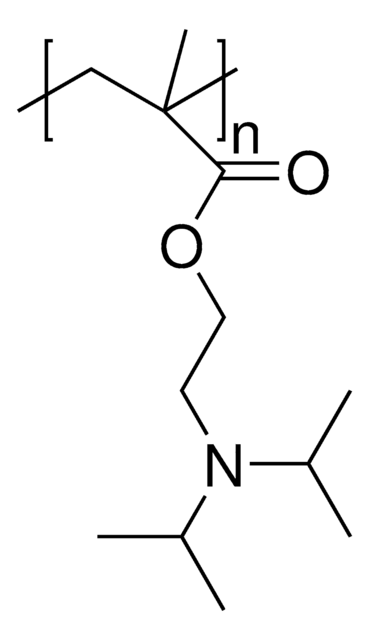
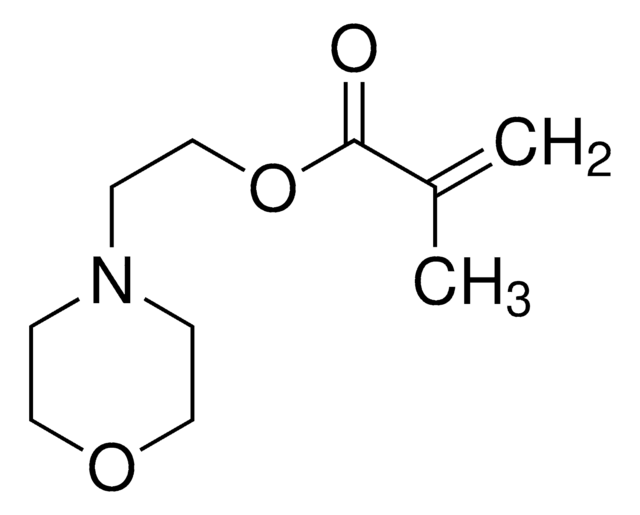
![[2-(Methacryloyloxy)ethyl]trimethylammonium chloride solution 75 wt. % in H2O](/deepweb/assets/sigmaaldrich/product/structures/316/612/66b0f4cf-d060-427d-b4f5-e8fab3e5cffe/640/66b0f4cf-d060-427d-b4f5-e8fab3e5cffe.png)




